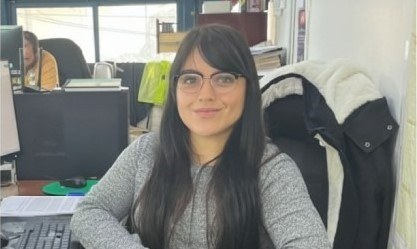Dalia Marín, a student of the Master’s in Remote Sensing at Universidad Mayor, was awarded the 2025 University Research Valorization Fund (VIU) with her project Sibila, an innovative proposal that seeks to predict landslides through artificial intelligence, machine learning, and geophysical models.
With experience in mining consultancy and currently working at the Municipal Planning Secretariat (SECPLA) of La Granja, Marín has been able to deepen her knowledge of the causes and effects of floods and mass movements in Chile. Her research is being tested in the Yerba Loca Sanctuary in the commune of Lo Barnechea, where she uses historical data to validate the accuracy of her models.
The project not only has a scientific focus but also a social and cultural dimension. “Sibila stands for Intelligent System for the Search and Identification of Threatened Areas, and also refers to the Greco-Roman women who could foresee the future. I wanted to give this initiative a feminine touch,” explains the student.
Waldo Pérez, who directs both the Hémera Center and the Master’s in Remote Sensing, and also serves as the project’s supervisor, highlighted that Sibila represents “a significant contribution, both scientifically and technologically, as well as in its territorial applicability, strengthening knowledge transfer towards concrete solutions for natural risk management.”
With the support of Pérez and an interdisciplinary academic team, Dalia aims for her model to become a useful tool for public and private institutions, as well as communities facing the challenge of anticipating and mitigating landslides in the country.
